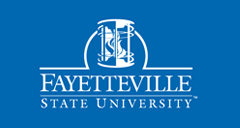Abstract
Historically Black Colleges and Universities (HBCUs) are facing challenges to their continued existence on several fronts. One is fiscally, as federal funding for education has been cut and the responsibility for paying for higher education has been levied on students and parents. Another challenge is the amount of endowment dollars available to them and lastly, there are questions today as to if HBCUs are still needed in a society that has allowed African-Americans to enroll in Predominantly White Institutions (PWIs). Both of these challenges are contingent on the most critical issue – accreditation. The loss of accreditation of units and entire institutions has forced several HBCUs to shutter their doors. In 2016 alone, four presidents have been fired due, in part, to of accreditation and budgetary shortfalls.
HBCUs are more than learning institutions; they are also cultural and economic incubators in their localities and regions. A loss of HBCUs creates a loss of valuable opportunities for first generation students of all races, researchers and voices in our American society.
Recommended Citation
Crawford, Jerry II
(2017)
"HBCUs: Accreditation, governance and survival challenges in an ever-increasing competition for funding and students,"
Journal of Research Initiatives: Vol. 2:
Iss.
3, Article 1.
Available at:
https://digitalcommons.uncfsu.edu/jri/vol2/iss3/1
Included in
Bilingual, Multilingual, and Multicultural Education Commons, Curriculum and Instruction Commons, Educational Assessment, Evaluation, and Research Commons, Educational Leadership Commons, Higher Education Administration Commons, Journalism Studies Commons, Liberal Studies Commons, Mass Communication Commons
